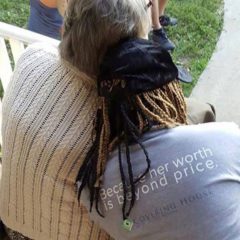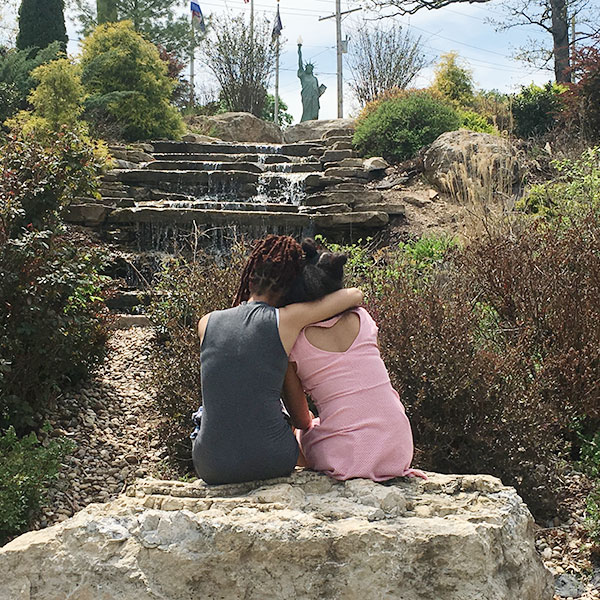Bringing to Light the Darkness of Human Trafficking
Every January since 2010 has been recognized as National Human Trafficking Prevention Month. Human trafficking, especially sex trafficking, is a very real problem in Missouri, which ranks in the top 10 states for reported cases per capita. An often misunderstood issue, trafficking is equally perpetrated by an intimate partner or family member of the victim, as it is strangers preying on the poor and vulnerable. And, the exploitation of a minor for commercial sex is human trafficking, regardless of whether any form of force, fraud or coercion was used. YouthBridge is committed to helping address this human rights abuse – a form of modern-day slavery – and supporting its survivors.
In 2019, we became a funding partner for the Missouri Collaborative Against Human Trafficking, which conducted a comprehensive study of the issue in Missouri and Metro East St. Louis, Illinois. The research, led by Dr. Andrea Nichols from St. Louis Community College-Forest Park and Dr. Kathleen Premble from the University of Missouri-Columbia, also included a statewide needs assessment of the social, medical and legal services available to survivors. In all, the findings were based on the experiences of more than 400 survivors of sex and labor trafficking in the state and the various organizations that have assisted them.
The study resulted in the creation of a statewide resource guide for agencies connecting victims to help and a proposed strategic plan based on the top needs identified in each region. Overall, mental healthcare, housing and shelter, and substance abuse treatment emerged as the greatest needs across the state. As a result, much of the action plan focused on improving these areas, such as expanding reimbursement for foster care housing beyond the age of 18 and developing a formalized statewide network of dual trafficking and trauma informed mental health providers.
“I think the report certainly brought light to the gaps in services, while also helping to raise general awareness of trafficking in our own communities,” says Sherrita Allen. “Once people hear about the issue, they want to help, and this can help direct them on how.” Allen, Executive Director of The Covering House, was one of a handful of providers and experts asked to review a draft of the report.

YouthBridge client, the Wayne C. Kaufmann Charitable Foundation, has had a special interest in supporting youth survivors of sexual violence. The Covering House, which provides therapeutic recovery services to survivors of child sex trafficking in a residential facility and client homes, has received grant support from the Kaufmann Foundation for about the past four years, says Allen.
“They have been steadfast in this mission with us and the impact has been deep,” she says. The support has helped enable the organization to operate debt-free while providing educational and therapeutic resources and working to expand services, including opening a much-needed second residential campus that will increase housing from 5 to 15 youth. “Unfortunately, we’ve had to turn away children who need this type of residential services, and it’s not something you ever want to do.”
The Covering House clients (survivors) range in age from 12-18, are primarily female, and will stay in the program for an average 12 to 15 months. Programming, individualized to each client, includes individual, group and family therapy, home schooling or tutoring, experiential learning and life skills training. “They emerge with an attitude of not just surviving but thriving,” says Allen. One “superstar,” she says, came to them five years ago with an intense feeling of hopelessness – not believing she would ever see her 18th birthday – and today is a wife, mother, vocal advocate for victims and loyal donor to The Covering House.
“These children aren’t to be pitied but should be admired for the incredible warriors they are,” says Allen. “They represent our next generation to lead us, so we need to make sure they are healed from these awful crimes.”
If you would like to donate or have any questions about this organization, please contact Allison McDonald.
